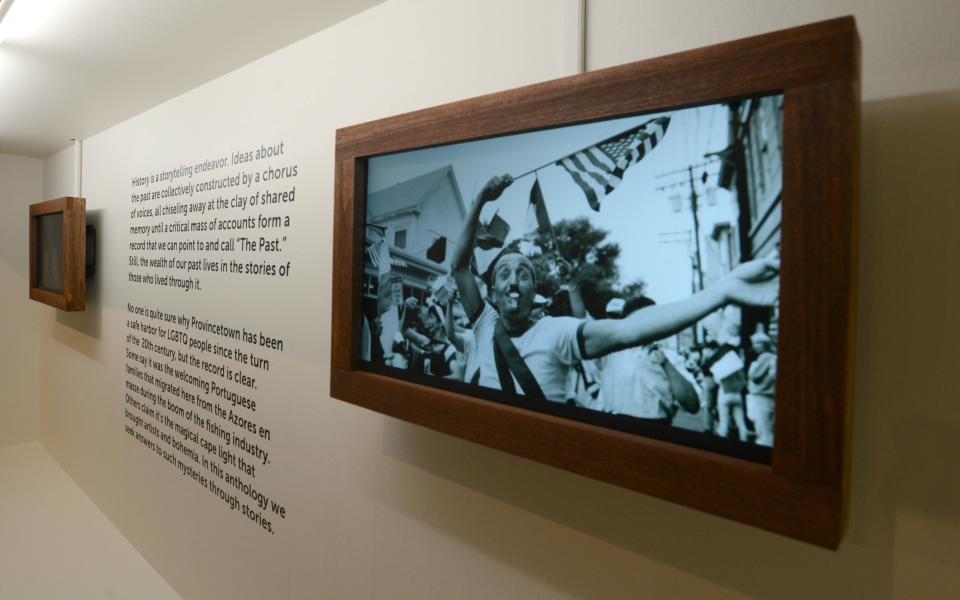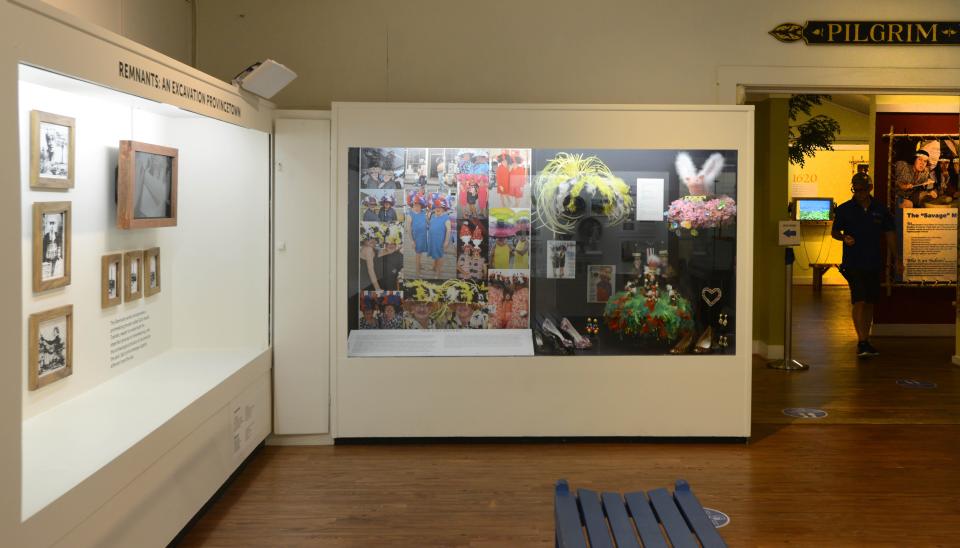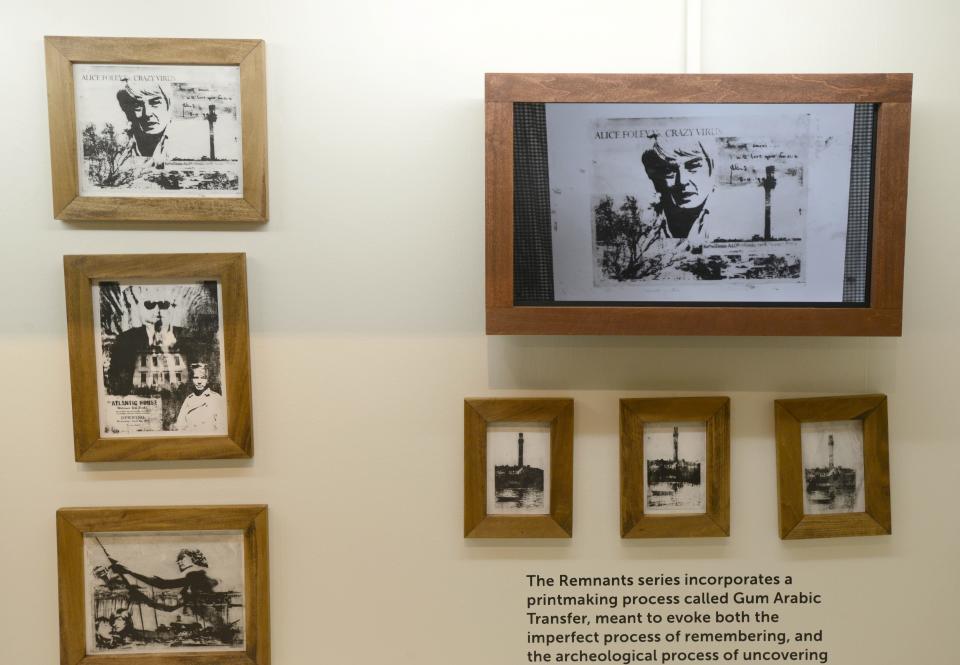'Most open, most caring and kind town': Century of LGBTQ+ history in Provincetown revealed in new exhibit
How long ago did LGBTQ+ people embrace the fishing enclave of Provincetown as a safe harbor? Adam Golub spent a couple of years digging into local archives to find out.
“It’s a gaping hole in the historical record of the early 20th century (in Provincetown), in terms of explicit mention of gay people,” says Golub, the creative director of the Generations Project.
The New York-based nonprofit is working to fill in some of those blanks as part of a new exhibit at Pilgrim Monument and Provincetown Museum. Since 2019, the Generations Project has curated local interviews and artifacts to help tell the LGBTQ+ experience over the last 100 years in Provincetown.

The new exhibit, “An Anecdotal LGBTQ+ History of the Last Century of Provincetown,” opened in June, and resurrects oral histories from those who have over the decades claimed this beacon of acceptance as their home.
The exhibit features short documentaries and recordings from the Generation Project’s storytelling events, hosted each year since 2017 at the Crown & Anchor resort. One of those storytellers was newspaper columnist Beata Cook, born in the West End in 1924, who recalled Portuguese tolerance and her own family’s reaction when she came out as gay in her 20s after World War II. Cook died last year at 96.
In memoriam: Rachel Schwolow always returned to Provincetown: foundation will honor drowning victim
While Golub says it’s tough to pinpoint a date, “we are certain that Provincetown was a place where gay and lesbian people were showing up” as the town was becoming an arts colony. Charles Hawthorne founded the Cape Cod School of Art in Provincetown in 1899, and the scene was thriving by 1914, when the Provincetown Art Association and Museum was established and artists began visiting from New York City. The famed Provincetown Players theater troupe were staging their first plays around this time.
The Hat Sisters are here
The new main-gallery exhibit chronicles the town’s LGBTQ+ history through intergenerational perspectives. Its hybrid presentation pairs interviews with prints of Provincetown landmarks, such as the Atlantic House, created by graphic artist Sylvaine Alfaro of the Generations Project.
Artifacts are also on display, including the high heels and elaborate garments worn by the Hat Sisters. Starting in the 1980s, Tim O’Connor and John Michael Gray were Provincetown’s perennial show-stealers, a later-married couple known for elaborate headwear whose antics and activism delighted locals and tourists for more than 30 years. Gray died in 2016.
Also among those profiled are the late Alice Foley, the town nurse during the early days of HIV/AIDS in the 1980s, and the late Dan Mullin, who spoke of his sick friend whose last wish was to spend his final days in Provincetown.

“AIDS really mobilized the political identities of gay people, and then it started to really enter into public consciousness in a certain way that was irrevocable,” Golub says. “The material consequences of being an out queer person were really grave.”
“During the height of the AIDS crisis, they came (to Provincetown) because their families had shunned them and pushed them out,” adds museum executive director K. David Weidner. “Provincetown was a safe space.”
Telling people's stories
Ilona Royce Smithkin found that to be true in the 1940s, when she hopped her first train here.
“I felt like someone put on the light in the room,” she told Golub in an interview for the exhibit’s series of documentaries, “Remnants: An Excavation of Provincetown,” that visitors can view.
Smithkin was born in Poland but the woman who was known as a charming lesbian painter and cabaret singer with long eyelashes lived most of her life above the gallery she shared with Karen Katzel on Commercial Street.
“In the whole world, it’s about the most open, most caring and kind town,” Smithkin says about Provincetown in the Generations Project video. Her interview was recorded before she died last year at 101.
Coming soon: 'Shoot for the stars': Regina Hall's new movie, bestselling Straub headlines book fest and more arts news
“One can choose to tell the LGBTQ+ history of Provincetown, but what ends up really happening is the history of Provincetown,” Golub says, “because of how deeply entrenched and integrated into every aspect of life gay people have been for such a long swath of history.”
Purposefully, the “Anecdotal LGBTQ+ History” exhibit stands adjacent to the museum’s other new permanent exhibit, “Our Story,” curated by Mashpee Wampanoag tribe members Paula and Steven Peters and opened in 2020.

Fundraising has come from private donations and a grant from the National Endowment for the Arts, Golub says. Plans for the LGBTQ+ exhibit include expanding to offer visitors a more interactive experience.
Weidner says this evolution will reflect the museum’s broader approach to how it frames past events.
“A lot of our exhibits have not changed for decades,” Weidner says. “This (LGBTQ+) exhibit is going to continually grow and morph. It is part of our mission of truth — which is about tolerance, respect, unity, trust — as we change our institution to be more accepting of everyone.”
To see the new LGBTQ+ exhibit
When: 10 a.m.-5 p.m. (except closed Tuesdays); the museum will close for the season Nov. 13
Where: Pilgrim Monument and Provincetown Museum, 1 High Pole Hill Road, Provincetown
Admission: $20.94 for adults; $16.75 for teens and seniors; and $9.42 for children
Information: pilgrim-monument.org
This article originally appeared on Cape Cod Times: Provincetown's century of LGBTQ+ history revealed in museum exhibit

